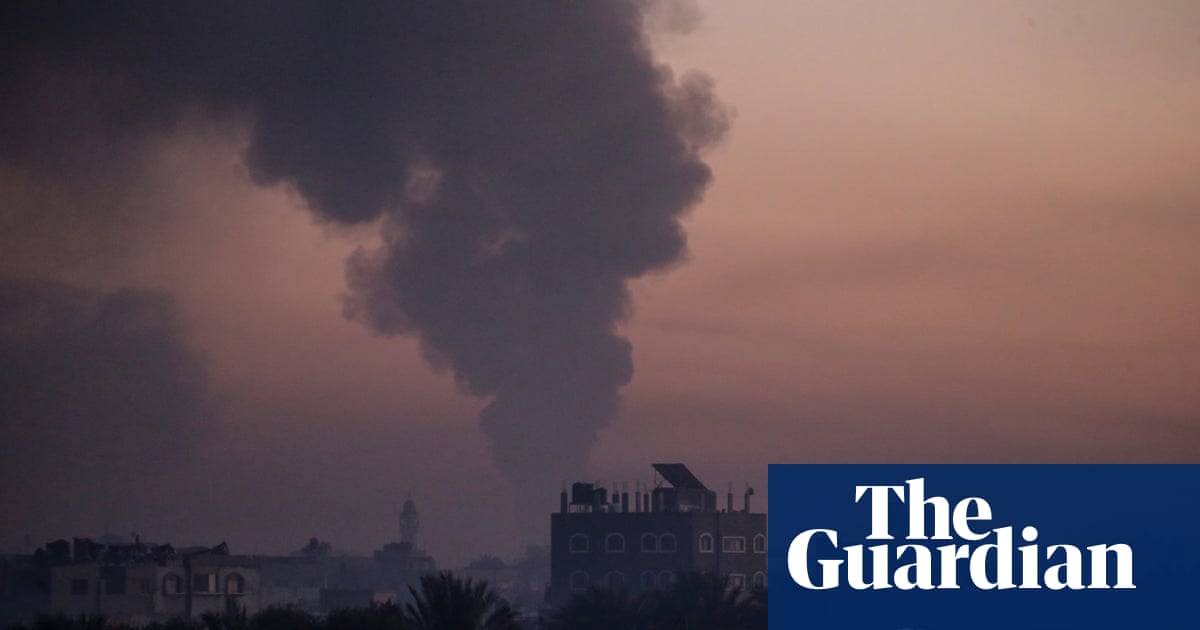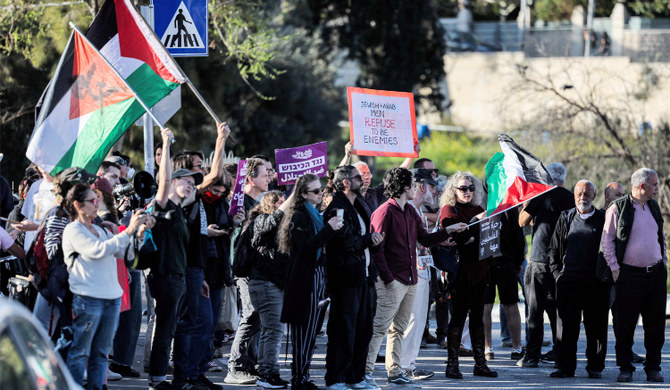
ormalisation” with Israel is still a dirty word in Arabic. But that hasn’t stopped the United Arab Emirates, the second most wealthy and powerful of the Gulf states, concluding a peace agreement with Benjamin Netanyahu, brokered by Donald Trump – at his transactional worst and with an eye on his chances of re-election in November.
Even accounting for Trumpian self-advertisement it is a big deal, both metaphorically and in reality. In the 72 years since its independence, Israel has signed just two peace treaties with Arab states: Egypt in 1979 and Jordan in 1994. The UAE agreement is of a different nature because it was never involved in any hostilities. And it sends a powerful, taboo-breaking political message.
According to all three parties, it was reached in order to prevent Israel going ahead with unilateral annexation of parts of the occupied West Bank, promised by Netanyahu – and approved, in principle, in Trump’s controversial “deal of the century”. Crucially, that means that the status quo – of Israeli occupation for 53 years – will remain unchanged.
The UAE under Crown Prince Mohammed bin Zayed Al Nahyan, aka MBZ, is known for its aggressively interventionist foreign and security policies – backing the Saudi-led war in Yemen, opposing Islamist movements and state sponsors such as Qatar and Turkey, and intervening in Libya’s civil war.
UAE-Israel ties have intensified and become increasingly visible in the last decade – based on shared hostility to Iran. Intelligence cooperation is highly developed. Israel diplomats are based at the Abu Dhabi HQ of the International Renewable Energy Agency. Bahrain, Oman, Saudi Arabia and Qatar have followed suit in engaging with Israel, though generally behaving more discreetly.
Israeli ministers and business people visit the UAE regularly. Direct flights from Tel Aviv are standard. Israel will take part in (the Covid-delayed) Expo 2020 in Dubai next year. Its foreign ministry runs Arabic social media accounts which emphasise the common interests of the two countries – including the presence of a small Emirati Jewish community.
It is still surprising, nevertheless, that the UAE has gone so far as to establish formal diplomatic relations with Israel instead of continuing with its “below the horizon” links. Part of the explanation is generational change: Sheikh Zayed bin Sultan Al Nahyan, the founder of the state, was a renowned supporter of the Palestinian cause, which is marginalised among Gulf elites these days. His son’s calculations include pleasing the man currently occupying the Oval Office – and keeping the US engaged in the Middle East.
The UAE ambassador to Washington, Yusuf Al Otaiba, raised eyebrows recently when he published an article in an Israeli newspaper warning that annexation would prevent further normalisation. In retrospect, that provided a clue to what has just happened.
The official line in Abu Dhabi, echoed by loyal media outlets, is that the UAE has acted to protect Palestinian rights by preventing Israeli annexation. Palestinians themselves are understandably not convinced: spokeswoman Hanan Ashrawi angrily dismissed the idea that they would serve as a “fig leaf” for Abu Dhabi’s benefit.
Speculation is rife that the former Palestinian security chief Mohammed Dahlan, now an adviser to MBZ – and a bitter rival of Mahmoud Abbas, the Palestinian president – may have been involved. Hamas, controlling the blockaded Gaza Strip, condemned the deal as a “stab in the back” of the Palestinian people.
In the past, the UAE was formally committed to the Arab peace initiative, launched at the violent peak of the second Palestinian intifada in 2002. That calls for the establishment of an independent Palestinian state as a precondition for normal relations with Israel – and not the disconnected enclaves of the Trump peace “deal”. But that commitment has now been seriously undermined. This new agreement sets a precedent that may be followed by Bahrain or Oman, though the larger question mark is over more cautious Saudi Arabia.
Regardless, this is still a landmark event. In historical perspective, the Egyptian president Anwar Sadat was denounced as a traitor when he visited Jerusalem in 1977. Jordan at least waited until after the PLO agreed the Oslo accords with Israel in 1993 before signing its own treaty. MBZ’s decision marks a first for the wider Arab world.
Yet how a viable Palestinian state alongside Israel will be achieved by the toxic combination of Trump, Netanyahu, and Palestinian and wider Arab divisions remains a troubling question. Recent fashionable talk of achieving a “one-state solution” – with equal rights for the Arabs and Jews who live “between the river and the sea” – is even more unattainable.
Qualifications immediately followed announcement of the accord: UAE sources clarified that their embassy will not be located in Jerusalem, while Netanyahu pledged that the application of Israeli sovereignty (aka annexation) has only been postponed – not cancelled. Mike Pompeo, the US secretary of state, nevertheless expressed his delight. “Blessed are the peacemakers,” he tweeted, adding, “Mabruk and Mazal tov” – congratulations in Arabic and Hebrew.
There is nothing wrong in principle with breaking the fiction of pan-Arab solidarity, but it’s hard to interpret this dramatic move as reviving long-fading hopes for a just solution of the world’s most intractable conflict – which is in Israel’s interests too. Abandoning the Palestinians is not a good idea – whatever the spin from Washington, Jerusalem or Abu Dhabi.
• Ian Black is a former Middle East editor and diplomatic editor of the Guardian and a visiting senior fellow at the Middle East Centre, LSE. His latest book is Enemies and Neighbours: Arabs and Jews in Palestine and Israel, 1917-2017












